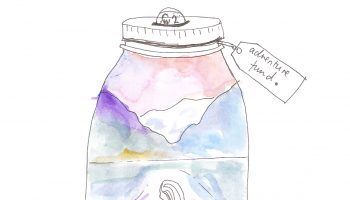Having recently returned from two perspective-altering weeks in Indonesia, this is a summary of my reflections.
I believe it is appropriate, almost necessary, to begin by relaying the strategic importance of Indonesia to Australia – a relationship that extends beyond the island of Bali.
Indonesia, a diverse archipelago, rich in natural resources and situated in what is arguably one of the most important trade routes in the world, is the world’s third largest democracy. On the DFAT website, Indonesia is listed as ‘one of Australia’s most important bilateral relationships.’ It is interesting, albeit daunting, to know that the most number of Australian deaths by terrorism has occurred on Indonesian soil.
So what drew me to Indonesia?
Well, whilst engaging with the sustainable development community here in Melbourne, I stumbled upon the Monash Abroad study tour, titled Sustainable Futures in Indonesia. As a non-bearing credit programme, I was sceptical of the impact it would have on me. However, I was proven wrong as soon as we landed in Indonesia. What little understanding I had of Indonesia was thrown out the window.
I remember my first impressions, as if it were yesterday. The heat was unbearable. We had just come from 10 degrees of Melbourne winter, straight into 30 degrees and 100% humidity. I was lugging two giant suitcases, whilst in merino wool clothing, wrapped in a heavy down jacket. I thought I was experiencing hot flushes at 22 years of age. We stepped out of Adisucipto International Airport, Yogyakarta, to cries of bule from dodgy taxi drivers. Bule, an Indonesian term to describe a foreigner, especially Caucasians. It is a term that westerners often find offensive, although it is usually not intended to be insulting. During the duration of our stay, it was itched into our thinking that metered Bluebird taxis were the only taxis we should take; that is if we wanted to come out of the trip in one piece. I wonder if, had we not been bule, could we have comfortably taken a non-Bluebird taxi?
Yogykarta – a love affair
We were very lucky to have a fantastic CIS country director, a Balinese local by the name of Liz Oprandi, or as we now affectionately refer to as Liza Prandis, the result of a misspelling from a restaurant booking. Liz ensured that our trip flowed from the word go. My memories of Liz include the constant phone calls and arrangements that she would make at all hours of the day. She would be the first one up and the last one to leave. But most importantly, she would fiercely defend our diverse dietary requirements; translating and ordering for nine people often simultaneously. The idea of not being able to eat certain vegetables or foods was often received with strange looks from the locals.
As I write this, I refer back to the snippets of emails I wrote conveying to friends and families the experiences and emotions I felt during the stay.
Every day was memorable. However, a highlight visit was to Little Care, a not-for-profit organisation dedicated to serving the needs of local children in Yogyakarta. Little Care ran several projects, however, the one project we visited was the English library and after school centre. The centre was founded and managed by Bu Inda, a humble and generous Indonesian woman, who so happened to be good family friends of Liz, our country director. She resided in a well-kept European-inspired villa, adjacent to Little Care. We spent the afternoon with the children, all of whom were fasting, as it was Ramadan. We played games with the children such as ‘duck-duck-goose’ and ‘what’s the time Mr Wolf.’ The games brought us back to our childhood. We seemed to be enjoying it as much as the kids were.
One of the defining aspects of the trip would have to be the culinary experiences organised for us. The most memorable meal for me was our final dinner in Yogyakarta at Gadjah Wong. By the time we left, I had fallen in love with Yogyakarta – with the people, the culture, and the food. The kindness, humility and generosity that was afforded to us was like nothing I had experienced before. Our dinner at Gadjah Wong was the perfect experience to summarise our time in Yogyakarta. Gadjah Wong is a social enterprise that was built on a former rubbish dump, with the vision of cleaning up the surrounding area and adjacent river. Over the course of Gadjah Wong’s journey, they achieved their vision.
The next stop was Jakarta
Jakarta. It is a city where the metropolitan area is home to 28 million people. That is roughly 4 million people more than Australia’s population. Transportation is a huge problem for Jakarta, a city with a limited rapid transit system. Road networks for private vehicles are prioritised over an effective public transport system. We would often drive – I reluctant use the word drive in Jakarta as we were stuck in gridlock most of the time – beside an empty Transjakarta bus lane. There is great potential for the Transjakarta bus rapid transit service if it was to operate at optimal capacity. I recently read that the local government has allocated investment into bringing Transjakarta to optimal capacity. On top of that, Joko Widodo, the former mayor of Jakarta and recently newly elected President of Indonesia, relaunched the city’s MRT (Mass Rapid Transit) subway project in 2013, with the completion date set for 2016. The project, albeit two decades too late, will not solve the city’s transport problems but will most certainly alleviate the pressures of a rapidly growing population.
Sustainability, an overarching theme
Although, I have dedicated most of this piece to reflecting on my experiences, every one of those experiences have been related to the overarching theme of sustainability; it should permeate every sector of society. According to the UN World Commission on Environment and Development (WCED), sustainable development is defined as “development that meets the needs of the present without compromising the ability of future generations to meet their own needs.” We were forced to confront sustainability issues whilst living in Indonesia – we weren’t able to turn a blind eye as everywhere we looked, the problems were still there. Whereas, in Melbourne, it is easy to avoid these issues, as they are so carefully hidden away from us. Here, our rubbish is taken to a tip. It does not matter whether we have thrown away 60L or 120L of waste – what is an additional 60L of waste to us, when we do not see it anyway? We can and we do use electricity and gas generously, without seeing the implications of overconsumption. In Australia, Poverty has its postcodes, so if you’re living in a comfortable suburb, chances are that you may never encounter poverty in your life.
But in Indonesia, and in particular in Jakarta, inequality coexists with wealth. I would often walk out of my hotel room and stand in the hallway looking out to the neighbouring slum. I was staying in an international hotel with all the luxuries and amenities that $160 per night could buy. Yet, not even a metre away, corrugated iron and tarpaulin permeated my vision.
A memorable excursion
Although, the trip struck almost every chord of despair within me, I was also filled with hope from the passionate and dedicated individuals and organisations we interacted with. The most memorable excursion we did was to a not-for-profit called KDM. KDM’s vision was to empower street children to become skilled, confident and self-supporting individuals. They had several partner projects including Green Project and FFrash. Green Project helps reduce waste by salvaging whatever is recyclable from the refuse. According to Renie, the dedicated and humble project leader who we met, only 12 percent of garbage needed to end up in landfills. FFrash was a partner project that taught street children involved in KDM, the skills to make furniture and interior products from trash. I purchased a fantastic set of coasters made from recycled cardboard that had been waterproofed. Someone else in the group purchased a clock made from melted recycled bottle caps. To say the least, we were inspired.
Looking back, I am grateful to the organisers Sarah, from Monash Abroad, and Liz for organising this perspective-altering trip. My two weeks in Indonesia challenged everything I thought I knew about sustainable international development. It inspired me to take a humble step back and reflect on my life in Melbourne. I returned feeling even more grateful for the opportunities afforded to me as a citizen of a developed country. I felt grateful for my education and realised that this given right is not afforded to others around the world. Therefore, it is my responsibility to use my circumstances to contribute to the betterment of the global community. After all, I am a global citizen, who shares one planet with 7 billion other people. I hope that the next step in my journey will be one of purpose and intent, where I share in the vision of those like Bu Inda and Renie.
Image Credits: Anna Zhang


